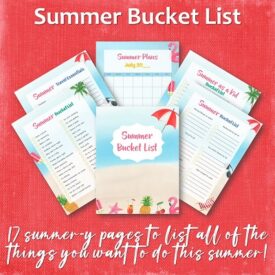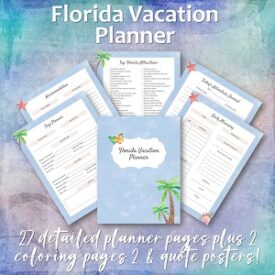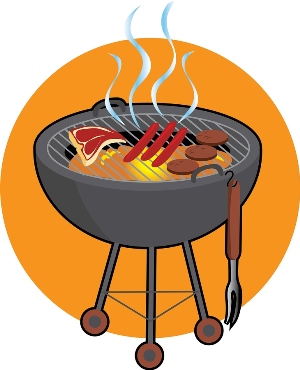 What does summer mean to you? For those who love food it means grilling and cooking out. Picnics, cookouts and family gatherings are all what make summer fun.
What does summer mean to you? For those who love food it means grilling and cooking out. Picnics, cookouts and family gatherings are all what make summer fun.
It’s said that food-borne illness is at its peak in the summer months. The warm temperatures of summer are the perfect environment for bacteria to thrive, and the backyard cookout can be another environment that encourages food contamination.
Have you ever been ill from eating bad food? It wasn’t pleasant, was it? If not, you then maybe you know someone who had food poisoning.
When you prepare food outdoors or are away from commercial refrigeration, it is always important to properly pack and store your food items so that the party isn’t over before it begins.
So, planning on a little summer fun? Here are some tips on keeping your food safe this summer:
Cooking on the Grill
More than one case of food poisoning has come from meat that’s undercooked. In fact, some of the more severe illnesses can result from eating partially raw or rare red meat.
Since summer is the season for grilling burgers, make sure you cook the burgers absolutely thoroughly, all the way through, with no pink showing.
Many people grill in the summer when they are not used to grilling or cooking at other times, setting the stage for cooking inaccuracies. Be sure there is no red juice from burgers pierced with a fork.
Set burgers on a white platter and let them rest for at least 10 minutes before serving – if any reddish juice ends up on the platter during the rest period, put the burgers back on the grill.
Washing Up
Summer is a time for picnics and cookouts, and many times there is no hand-washing facility available at the cooking site. Bring jugs of water and antibacterial soap to the site so that you have these crucial elements available for food preparation and surface clean-up.
Any time you handle raw meat, wash thoroughly before handling other foods, especially foods that won’t be cooked such as vegetables, fruits, or bread. You should also wash hands before handling utensils and cutting surfaces.
Coolers
When you transport foods like potato salad or burger meat, they need to be kept cold en route. Pack plenty of ice or frozen “ice” blocks/gel packs along with the food. One good idea is to freeze water in used, plastic water bottles and distribute those around the food in the cooler.
On the way, keep the cooler in the car where it’s air conditioned rather than in the trunk.
Put Food Away
At home, it’s easy to forget foods on the counter. In the summer, it’s especially important to put food back into the refrigerator or freezer after using. At cookouts and picnics, have a cooler handy to put leftovers into right away.
It’s said that food should not be at room temperature or exposed to warm outdoor weather for more than two hours.
More Food Safety Tips
- Prepare as much at home as you can – This goes for picnics and cookouts in the park. If you can precook food like ribs or chicken (parboiling) then you are not dealing with raw meat. The heat of the day can turn meats bad faster than you would imagine. And, blood from raw meat can spread bacteria to surfaces and other food. No one wants to get salmonella or worse.
- Keep cold foods cold – This is especially true of salads that contain mayonnaise. You don’t want them warming up and getting rancid. Instead of large bowls that are hard to pack and keep cold, package macaroni, tuna and chicken salad in smaller containers that can be covered with ice and kept cold. Even better than ice are ice packs. Keep them in the freezer until use and layer them under, beside and over your foods.
- Cover all foods when outside – Bees and flies, not to mention ants, are attracted to picnics. You don’t want flies landing on the fruit salad all day. Just looking at it will make you sick, let alone eating it. Cover meat when cooked so it too is protected from pests.
- Use enclosures when you can – Mosquito netting can help avoid pests from getting at your food and also keep your guests more comfortable. It also lowers the temperature where you are serving the food.
- Change the menu – Instead of a lot of salads that can wilt or go bad in the heat, offer nuts and dried fruits to eat. They are packaged for easy carrying, especially to the park or when camping. If you like that sort of thing, try other dehydrated foods that don’t need refrigeration.
- Keep the hot food hot – Use a warmer bag to store grilled food. In hot weather, promptly refrigerate it after an hour or throw away the leftovers.
- Bring wipes – A pop-up container of wipes can be used to clean hands after handling food on the grill and between meals to keep everything as bacteria free as possible. Use them to wipe up spills and clean surfaces.
- Use a separate cooler for ice – Some people use the same ice for drinks that housed the drinks or the food. This can spread bacteria and is generally unsanitary. Use ice packs for food and ice for drinks.
When you host your next party, be sure that you use proper food safety measures and remember to keep the food safe so no one gets sick.










